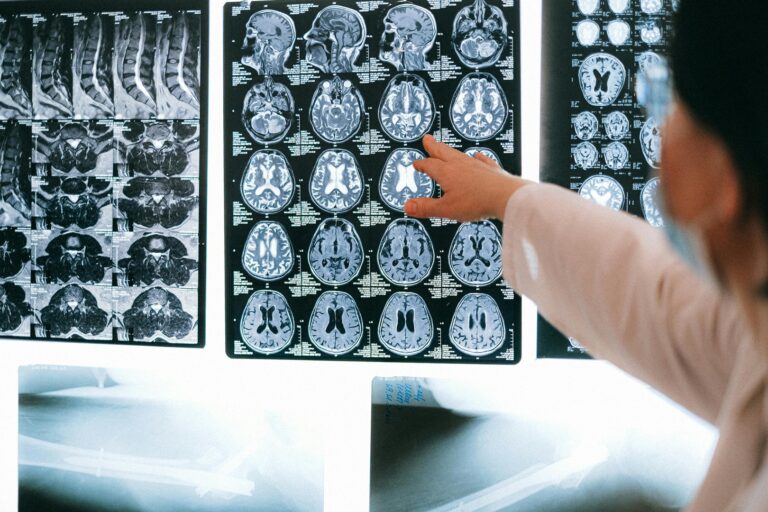On July 13th Dr. Athos Patsalides was our guest lecturer for our webinar series on IIH. Dr. Patsalides summarized his over 20 years of experience in the application of venous sinus stentingA minimally invasive surgery during which a metallic mesh in the shape of a tube (stent) is placed in the sinus. Click the term to read more on patients with IdiopathicThe term idiopathic is used when there is no detectable reason for something. Click the term to read more Intracranial Hypertension (IIH) titled “Best Practices for Venous Sinus Stenting. Are we over-treating or under-treating patients?”
Dr. Patsalides is a Neurointerventionalist at North Shore University and is Chief of NeuroInterventional Surgery at North Shore University Hospital, the flagship hospital of Northwell Health. He has pioneered novel treatments for IIH and pulsatile tinnitus and is an international expert in diagnosing and treating venous sinus stenosis.
Dr. Y. Pierre Gobin moderated this lecture. He is an interventional neuroradiologist at Weill Cornell Medicine in New York. He is a pioneer in new and effective treatments for cerebral aneurysms and has developed and established minimally invasiveinvolving the introduction of instruments or other objects into the body Click the term to read more surgical approaches to treat acute strokes and eye tumors.
Here is a summary of his lecture:
The results of his first clinical trial on venous sinus stenting (VSSA minimally invasive surgery during which a metallic mesh in the shape of a tube (stent) is placed in the sinus. Click the term to read more) was published in 2009. It showed that those with IIH who experienced severe vision loss, severe papilledemaSwelling of the optic nerve that carries visual signals from the eye to the brain. Click the term to read more, and fulminant IIH had significant improvement or complete resolve of these symptoms after the placement of a venous sinus stent. This procedure was found to be effective for normalizing papilledema, eradicating pulsatile tinnitusA whooshing or throbbing noise heard in one or both ears that can range from annoying to debilitating. Highly associated with venous sinus stenosis. Click the term to read more, making it a great treatment option in those who suffer from IIH.
Other key point from his lecture are:
- In patients with IIH, after placement of a venous sinus stent, they experienced a 17-point drop of their opening pressure on lumbar punctureA procedure where a needle is placed in the lower part of the spine (the lumbar spine) to access cerebrospinal fluid. Click the term to read more. Over 70% of these patients required less acetazolamideMedication used to treat glaucoma, epilepsy, altitude sickness, periodic paralysis, idiopathic intracranial hypertension, urine alkalinization, and heart failure. Click the term to read more/Diamox dosage or did not require it any further.
- In patients with IIH, even though intracranial pressure (ICPincreased intracranial pressure Click the term to read more) was normalized through the use of a venous sinus stent, headaches persist. The headaches after treatment are described as migraine-like. Certain risk factors make patients susceptible to persistent headaches.
- Venous stenting treatment failure is defined as: Ongoing headaches with persistent elevated ICP, no improvement of papilledema, opening pressure on lumbar puncture of 25cm H₂0 or greater after stenting, new stenosis seen on MRV.
- The risks of VSS are low and include: venous rupture, occlusion the vein of Labbe, infection, restenosis, cerebellar hemorrhage, subdural hematoma, and death.
- He discussed the shortcomings of current stent options used for the treatment of venous sinus stenosis and future options.
- Dr. Athos Patsalides and Dr. Marc Dinkin reviewed over 1,600 patients with IIH and their findings were published in the Journal of Neuro-Ophthalmology. To read the full abstract, click here.
If you would like to learn more about venous sinus stenting and its application in the treatment of IIH, please watch the full 1-hour video here.
Thank you for attending our lecture. We look forward to seeing you at our next live webinar in September with Dr. Robert Starke. He is a NeurosurgeonMedical doctor who diagnoses and treats surgical issues related to the brain, spine, and nervous system. Click the term to read more and Neurointerventionalist at the University of Miami and will discuss his experience in treating his patients with IIH. To register for this event, click here.
Disclaimer: As of this webinar, no stent has been approved by the FDA for use in the venous sinuses of the brain. Therefore, venous sinus stenting is currently performed with stents used off-label. Neither IIH-Hub nor Serenity Medical, Inc. endorse the off-label usage of stents. The views expressed in this video are those of the speakers alone.



